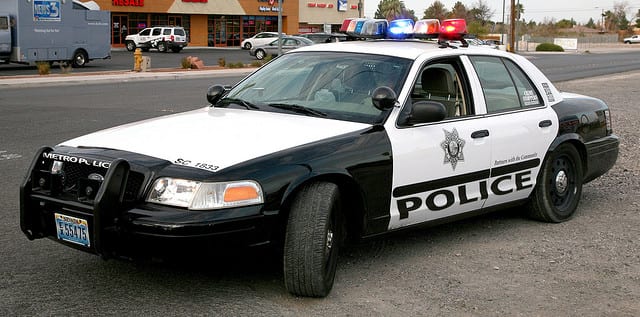What to do When Stopped by Police
Whether you have taken online driver’s ed or not, If you’re like most people, you get a little nervous when you see a police car. Almost everyone does. It’s natural. No one likes tickets. This is especially true for new teen drivers. Now imagine that police car is behind you, red and blue lights flashing, demanding that you pull over. Your slightly nervous feeling can turn into pure panic. Your thoughts begin to race with dire predictions of the officer yelling at you, taking you out of the car and taking you to jail. “Did I bring my license? Is my insurance current? Was I speeding?” These are all common thoughts and fears. Almost everyone has the same fears as you do. I am here to give you a game plan on how to think and act when stopped by the police.
I know many police officers so I asked them about this. I asked what I, a citizen, should do and think when I get pulled over. What they told me put me completely at ease. I was told that 99.9% of the time, the police are pulling over a car for a minor traffic violation or administrative issue, like expired plates. They do not know who you are. They are not out looking for you. These are usually very short stops and sometimes end in a ticket. I was surprised to find out that, in many cases, police officers will simply give warnings on minor violations. If you have a good driving record, most officers find that simply being stopped is enough of a deterrent. Most of the time, your fears about going to jail and the like are completely in your head. The officer saw a violation and simply needs to talk to you about it. Whether or not you get a ticket depends on a number of factors.
There is a rule among officers that is pretty much universal: You are going to be treated as well as you treat the officer. Officers tell me that even though they say they had made the decision to write a ticket when they stopped you, this isn’t always true. How you behave on a traffic stop can get you a ticket or get you out of one. Here are some don’ts, as told to me by police officers:
1. Don’t lie
2. Don’t argue. Save arguing for court
3. Don’t get out of the car
4. Don’t threaten the officer
5. Don’t make suspicious movements as the officer stops and approaches you in the vehicle
Here are some do’s
1. Do be courteous when stopped. In fact, be charming. Smile. Greet them. They don’t expect that and it makes their day.
2. Do keep your hands visible and listen to what the officer says. Do exactly what he/she says.
3. Do pull over to the right when you see the lights come on behind you. Driving around after the lights come on makes police officers suspicious.
These seem like simple and obvious things, but you would be surprised how many people do not do these things on traffic stops. These people are guaranteed to get a ticket. Police officers have very dangerous jobs. Most police officers get killed or injured on traffic stops. Safety on traffic stops is drilled into them in training. Being confrontational and argumentative does not make them feel safe. It heightens their sense of danger and, lets face it, makes them not like you. You’ll get a ticket. I’m not saying it’s fair, but life isn’t fair. The fair is in August.
This post wouldn’t be complete without addressing the fact that there may be nothing you can do to avoid a ticket. Some officers are going to give you a ticket no matter how you act. Some police officers only write tickets and do nothing else. Some never write tickets and loathe doing it. Oftentimes, departments will push citations as a result of citizen complaints about local driving habits. In many cases, there is more going on than meets the eye.
Most of your aggravation and fear can be alleviated if you think about traffic stops as outlined above. It’s not personal. They don’t know you. It’s probably a very minor thing and if you treat the officer well, you may just get off with a warning. Even if you don’t, it’s just a piece of paper and you can go to court and fight it if you wish. There is no mystery, but it bears repeating: expect to be treated as you are treating the officer. They are just people and like being treated well, too. In most cases, all things considered, it may get you out of a ticket and alleviate those butterflies you associate with being stopped.




